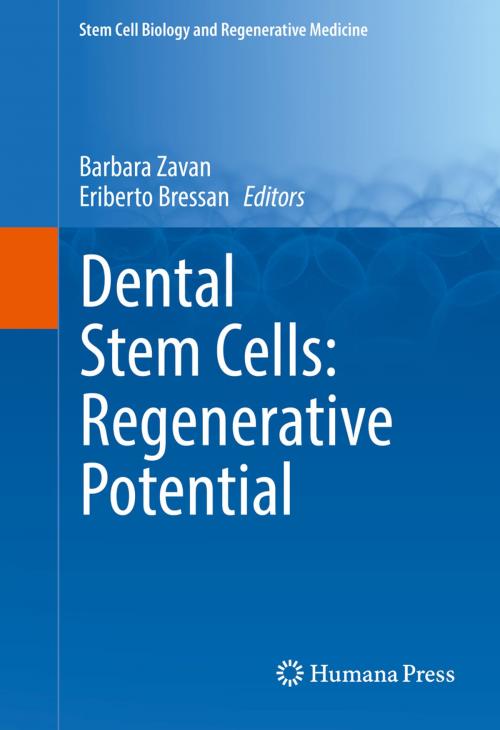Dental Stem Cells: Regenerative Potential
Nonfiction, Science & Nature, Science, Biological Sciences, Cytology, Other Sciences, Molecular Biology| Author: | ISBN: | 9783319332994 | |
| Publisher: | Springer International Publishing | Publication: | July 25, 2016 |
| Imprint: | Humana | Language: | English |
| Author: | |
| ISBN: | 9783319332994 |
| Publisher: | Springer International Publishing |
| Publication: | July 25, 2016 |
| Imprint: | Humana |
| Language: | English |
This book focuses on the basic aspects of dental stem cells (DSCs) as well as their clinical applications in tissue engineering and regenerative medicine. It opens with a discussion of classification, protocols, and properties of DSCs and proceeds to explore DSCs within the contexts of cryopreservation; epigenetics; pulp, periodontal, tooth, bone, and corneal stroma regeneration; neuronal properties, mesenchymal stem cells and biomaterials; and as sources of hepatocytes for liver disease treatment. The fifteen expertly authored chapters comprehensively examine possible applications of DSCs and provide invaluable insights into mechanisms of growth and differentiation.
Dental Stem Cells: Regenerative Potential draws from a wealth of international perspectives and is an essential addition to the developing literature on dental stem cells. This installment of Springer’s Stem Cell Biology and Regenerative Medicine series is indispensable for biomedical researchers interested in bioengineering, dentistry, tissue engineering, regenerative medicine, cell biology and oncology.
This book focuses on the basic aspects of dental stem cells (DSCs) as well as their clinical applications in tissue engineering and regenerative medicine. It opens with a discussion of classification, protocols, and properties of DSCs and proceeds to explore DSCs within the contexts of cryopreservation; epigenetics; pulp, periodontal, tooth, bone, and corneal stroma regeneration; neuronal properties, mesenchymal stem cells and biomaterials; and as sources of hepatocytes for liver disease treatment. The fifteen expertly authored chapters comprehensively examine possible applications of DSCs and provide invaluable insights into mechanisms of growth and differentiation.
Dental Stem Cells: Regenerative Potential draws from a wealth of international perspectives and is an essential addition to the developing literature on dental stem cells. This installment of Springer’s Stem Cell Biology and Regenerative Medicine series is indispensable for biomedical researchers interested in bioengineering, dentistry, tissue engineering, regenerative medicine, cell biology and oncology.















